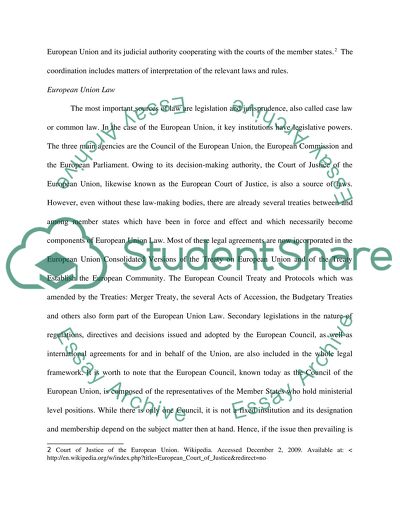Cite this document
(“European Union Law - Institutional Balance Essay”, n.d.)
European Union Law - Institutional Balance Essay. Retrieved from https://studentshare.org/law/1512035-european-union-law-institutional-balance
European Union Law - Institutional Balance Essay. Retrieved from https://studentshare.org/law/1512035-european-union-law-institutional-balance
(European Union Law - Institutional Balance Essay)
European Union Law - Institutional Balance Essay. https://studentshare.org/law/1512035-european-union-law-institutional-balance.
European Union Law - Institutional Balance Essay. https://studentshare.org/law/1512035-european-union-law-institutional-balance.
“European Union Law - Institutional Balance Essay”, n.d. https://studentshare.org/law/1512035-european-union-law-institutional-balance.


